AIS Camp Report
I arrived at the AIS at about 7.30pm, the same time as Warren McDonald and Bridie O'Donnell – we...
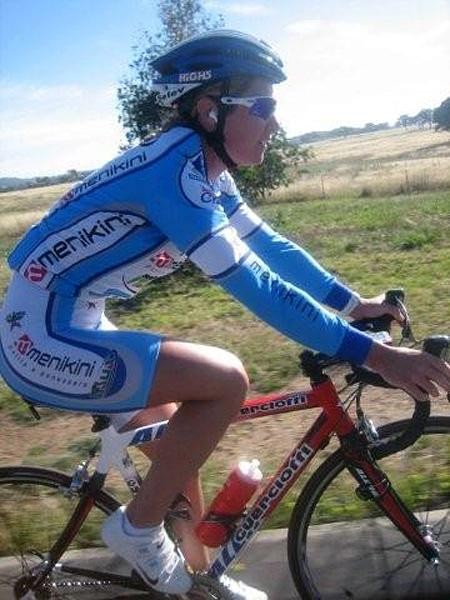
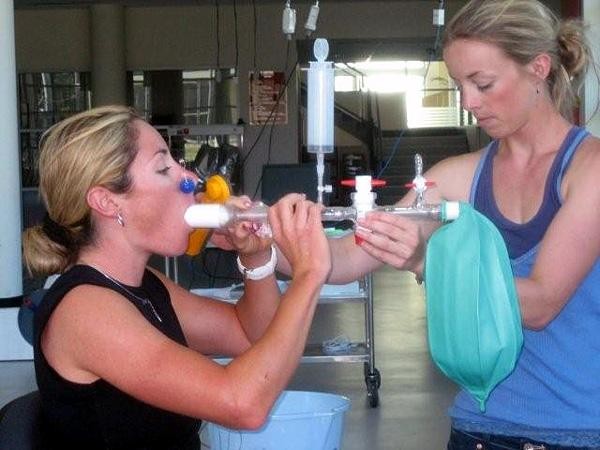
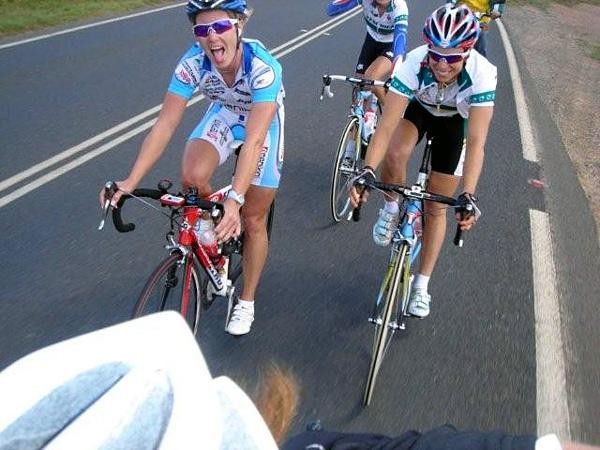
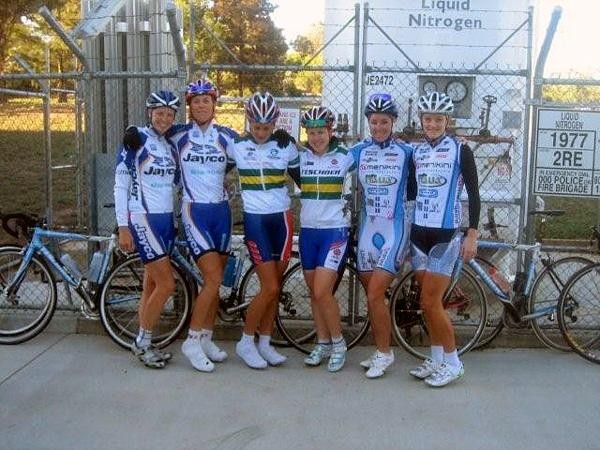
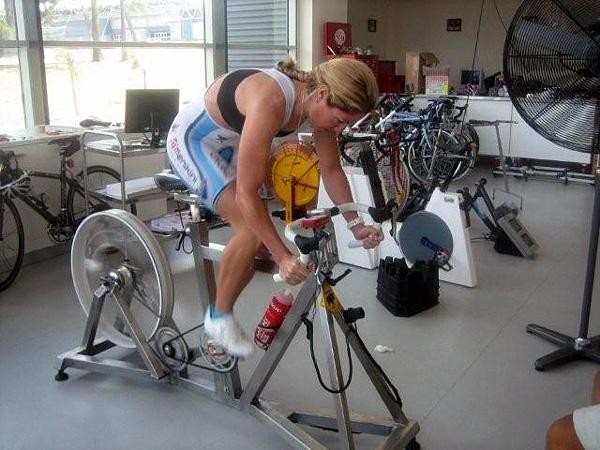
Australia, February 3-19, 2008
Day 1 (Sunday)
I arrived at the AIS at about 7.30pm, the same time as Warren McDonald and Bridie O'Donnell – we checked into 'Rezzies' (residents) and collected our swipe cards for general access around the AIS and also an additional, specific swipe card for the lab and the Altitude house.
We went straight to the dining hall for a feed. The AIS has changed a lot over the past couple of years. There is a new residents building across the road from the old Rezzies – the new dinning hall is in the new building. I guess we would be staying in the new building if we were not locked up in the lab-altitude house.
The food here has not changed, it looks great on day one, so many options and there's always a yummy desert but after just two days….the food gets a little boring.
After dinner I was shown to my cell… nah, it's not that bad. I'm sharing a room with Nikki Egyed – the only other professional cyclist at this particular camp. Apparently we got the best room; the largest, the quietest and the darkest. The six AIS team cyclists at this camp are Tiffany Cromwell, Josie Loane, Bridie O'Donnell, Peta Mullens, Amanda Spratt and Carla Ryan. Warren McDonald is directing the camp with support from the AIS sports scientists.
My first night sleeping at altitude was not so pleasant. Our room may have been set a little high for the first night at about 2500m. Inside the chamber the altitude is simulated by adding nitrogen gas to the rooms, in order to lower the percentage of oxygen in the air. We sleep with a device called a pulse oximeter attached to our wrist (like a wrist watch) which has a cable running to our pointer finger clamp. This gadget monitors heart rate and oxygen saturation on a screen next to our beds. There is also a physiologist sitting in an office nearby monitoring our statistics throughout the night… if our finger clips come off during the night our supervisor will come running in to see if we're still alive, and to reattach the monitoring device.
By 10pm I was starting to experience all the symptoms of exposure to high altitude; severe headache, high heart rate, fast short breathing, stomach pains and nausea. I didn't sleep a wink. At 7am my body couldn't cope anymore… I was medicated and knocked out until 12pm in the nicest deepest sleep!
Day 2 (Monday)
I woke up just in time for lunch, I think I still felt a little high from my medication so I walked over to the dining hall and joined the girls for lunch. I then participated in an Hb mass test, which is an uncomfortable breathing test to measure the amount of haemoglobin present in your blood. Our weight and blood is taken first and then we inhale eight milliliter of carbon monoxide/kg of body weight, hold our breath for ten seconds and then breath normally for a couple of minutes into a spirometer, before exhaling as much air from our lungs as possible. Blood is then taken again while we follow up with one further complete exhalation into a different device called a Fluke carbon monoxide analyzer. The end result is an accurate measure of our haemoglobin mass. Our sports scientist Laura Garvican will be conducting this test on each of us every few days.
I managed a one hour spin on the rollers while the rest of the team were out racing a 12km ITT in the rain! At dinner I heard all the gossip about their individual efforts in the rain… you could say that they were a little grumpy about it.
We got to bed early; I squeezed in half an episode of 'House' before falling asleep.
Day 3 (Tuesday)
6am: Bloods, height, weight and skinfolds. My results were 168.5cm, 57.0kg, 49mm over seven sites. My blood test results were good, I'm very healthy and all my levels are in the normal range.
8am: Departure for training. We started with four efforts up 'black mountain'. Two seven minute strength efforts at 60rpm and two race pace efforts. The sports scientists were waiting at the end of each effort ready to take blood and analyse our lactate levels. My lactate was over 12mmol after the second effort! My heart rate was over 190bpm for all the efforts and maxed out over 200bpm.
We then rode as a group over to Mt Stromlo and did another hill effort which was paced by Wazza on the motorbike… we got spat one by one as he accelerated towards the top of the 4km climb. Tiff and Carla held the bike all the way to the top but only Tiff had the legs to sprint over the top!
To finish off our morning training session we swapped off turns behind the motorbike for 30km, reaching 50km/hr on some sections around the lake.
We rode back to the AIS in the rain, took a quick shower and headed to the dining hall for lunch. We all had individual appointments this afternoon. My first appointment was another Hb mass test. I then took a deep one hour nap before my physio appointment. Karin (Stephens) worked specifically on my lower right back and psoas which I strained/injured last Saturday night at the track.
At 5pm it was back on the bike for a 30 minute high cadence spin. Shower, dinner, bed.
Day 4 (Wednesday)
8am: Wake up, toast and a protein shake for breakfast, get ready for training (testing).
9am: 45 minute group spin on the road for a warm up.
10am Testing begins! Eight bikes were lined up across the lab with their back wheels locked into the windtrainers; we mounted our bikes and calibrated our SRM cranks (which read power). Dave Martin talked us through the testing procedure.
4 x 6 second sprints (54 seconds recovery)
1 minute recovery
1 x 15 second sprint
3 minutes recovery
1 x 30 second sprint
5 minutes recovery
10 x 6 second sprints (20 seconds recovery)
5 minutes recovery
4 x 15 second sprints (45 seconds recovery)
5 minutes recovery
2 x 30 second sprints (1 minute 30 seconds recovery)
During this painful testing session we were all personally obsessed with producing the highest power readings possible, we were all breathing and sweating heavily and by the end of the workout there were a few loud moans and groans! The sports scientists loved it; they were all smiles and enthusiastically screaming encouragement at us!
Our blood lactates were taken three times during the session; my body produced the highest lactate at 16+mmol. I'm yet to see the power results but hopefully I produced the highest max power. It's very difficult for a sprinter to apply maximum power through a bike that you can't throw around, not to mention that the resistance for one pedal revolution is not consistent; this inconsistency of resistance really frustrated me during the shorter efforts. I felt that I couldn't produce consistent power, although I did see numbers over 800 watts for the first sprint but after that, my vision was blurred! I'd hope that I could produce at least 1000 watts on the road. We'll see how I go at the local crit tonight. I'll be wearing the helmet camera during the race so that the AIS can use the footage for bunch skills training.
After lunch today I was back with Karin in the Physio rooms, she worked a little deeper around my lower back injury and tried to mobilise the surrounding joints and loosen the tight muscles.
Karin gave me permission to skip this afternoon's group gym session as she will personally have control of my exercise program throughout the year. My back was in no condition after testing this morning to be put through a core stability program, so I was fortunate enough to have an hours rest before heading off to racing… more later on tonight's race!
So when we arrived at the race, Wazza (our coach) put us into teams of two, in order to make the local club race a little more interesting. I was teamed up with Tiff Cromwell. Tiff is a very handy team-mate; together we came up with a good plan. Everyone expected Tiff to attack the entire race but we decided to try a different strategy. The plan was to both cover moves and as it turned out; we both made the break and were the only team with both riders in the front group of about six or seven. Bridie O'Donnell and Amanda Spratt were aggressive in the front group but Tiff and I were able to cover all of their moves. Tiff lead through the fast technical corners 300m from the finish and I kicked off her and sprinted long and hard, hoping to collect some cool SRM data. My SRM battery went flat mid race so I didn't get the power reading for the sprint. The race played out exactly as we'd planned and we won.
Day 5 (Thursday)
8am: Wake up, eat toast (no butter, just jam) and yogurt (honey buzz).
9am: Walk to the AIS information centre and ask them to call me a cab, I was heading to the Canberra Hospital, department of thoracic medicine for a respiratory function/aridol challenge test – a test to prove you have Asthma. When I arrived and handed my referral over the desk I was informed that I was one week early! Woops! I'd missed the morning's training session and paid $35 bucks one way in a cab for this appointment so I begged in a professional manner to be slotted in, fortunately they were able to take me straight in for the test.
The first question was 'Have you done any strenuous exercise in the past 24hrs?' I mentioned that I'd raced last night and completed a vigorous testing protocol a few hours before that. One step forward getting into the testing lab and then one giant step back again…. They said that the test couldn't be conducted accurately post strenuous exercise and the test would also be affected if I'd taken antihistamines or asthma medication during the past few days.
This is a very serious test required by WADA and the UCI to ensure that athletes are not using asthma medications without having correctly diagnosed asthma; so I booked another appointment for next Friday (post recovery) and waited for another cab. I will need to cease the use of Ventolin, Symbicort, Telfast and Beconase on Tuesday.
At 12pm I joined Louise Burke and the AIS women's cycling team for a cooking class and a discussion on general nutrition over lunch. I think we excelled, our Thai chicken salad and Satay beef salad looked and tasted delicious…. Who would have thought something so healthy could have tasted so good! When I saw the ingredients of fresh lettuce and veggies etc on the table I thought 'How boring, we'll all be off to the dining hall after this.' How wrong was I?! The meals were extremely satisfying!
Louise supplied us with the latest AIS cookbook called "Survival around the World' and gave us a briefing on next weeks class.
While the AIS girls attended a compulsory psychology session I came back to the altitude house (Sierra Nevada) for a nap. It was a nice deep sleep! I woke up refreshed and motivated; I made my way down to the lab for a one-hour recovery spin on the rollers, preparing the legs for a slaughter (Vo2max test) on the ergo tomorrow morning! After the spin I went to the recovery pools with Peta Mullens. We shared the recovery spas, whirlpools and cold dip pools with about 30 male athletes with amazing physiques. We guessed that there were some swimmers, gymnasts and footy players amongst them… the footy players being the easiest to identify.
Peta and I did three minutes in the hot and one minute in the cold for half an hour. I did a lot of stretching while in the hot pools in order to loosen my hip flexors/psoas and quads. Shower, dinner and also desert tonight. Back to Sierra Nevada by 7pm. MSN chat with my Italian manager Sabino, a quick chat with Niki (Cooke) and now I'll settle into my evening episode of 'House' before nodding off.
Day 6 (Friday)
Well, today was all about testing! I had a VO2 max test at 11am. Nikki Egyed was first off at 9am, and then Sharon Laws was pushing her limits at 10am. Each of the 6 AIS women did a 30 minute time trial test during the day with Amanda Spratt being the first to test her power at 9am.
A Vo2 max test is done on an ergo machine, we spent a good 30 minutes trying to get the ergo position perfect (identical to my road bike) but as the saddle couldn't be changed, the bike felt rather uncomfortable. The test starts at 125 watts and the load increases by 25 watts every three minutes, so the test can last anywhere between 20-30 minutes, depending on how strong you are and how many watts you can push towards the end of the test. Even though my max power output is around 1000 watts, I've never finished the 325 watts increment at the end of a VO2 max test.
The sports scientists stand around yelling encouragement and taking blood lactates every three minutes to evaluate how the body is coping with each workload. The rider does the entire test with a mouth piece, which is connected to a plastic tube, and a big noisy machine called the 'mouse-maximal oxygen uptake system'. The test is extremely uncomfortable, you have this helmet thing bolted to your head that keeps the mouth piece and tube in place and then you have the scientists pricking and squeezing your finger or ear every few minutes while you're trying to give a maximum effort… o' and I forgot to mention the clipboard that is shoved in your face every three minutes with a perception of pain rating guide which you need to indicate by pointing and selecting!
I didn't have my best test today and I was feeling a little down about it until I caught up with all the girls at lunch and learnt that none of us tested very well. No one produced a personal best test and even though we are all feeling super fit, we're all rather fatigued from the heavy training during the week and sleeping at altitude; we haven't had much recovery.
After lunch I rushed back to my Physio appointment with Karin and we worked on my lower back. I hadn't warmed down very well after my morning test so I decided to jump back on the rollers for an hour; I was entertained in the lab while watching Peta Mullens do her 30-minute TT test.
Cheers,
Rochelle
www.rochellegilmore.com
Get The Leadout Newsletter
The latest race content, interviews, features, reviews and expert buying guides, direct to your inbox!
Rochelle Gilmore...